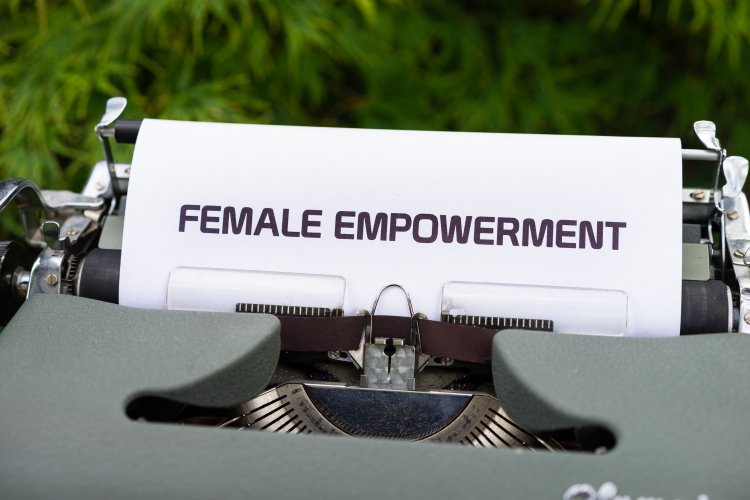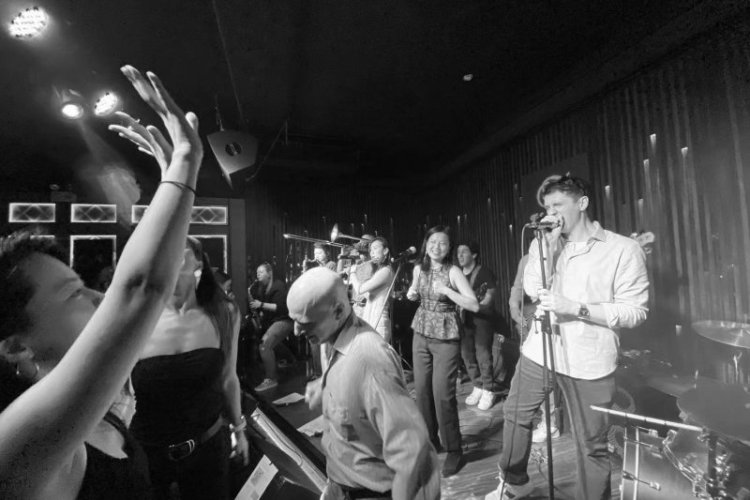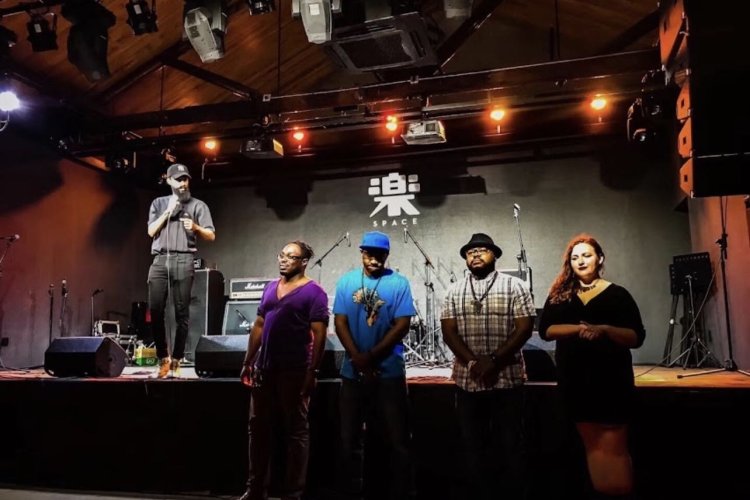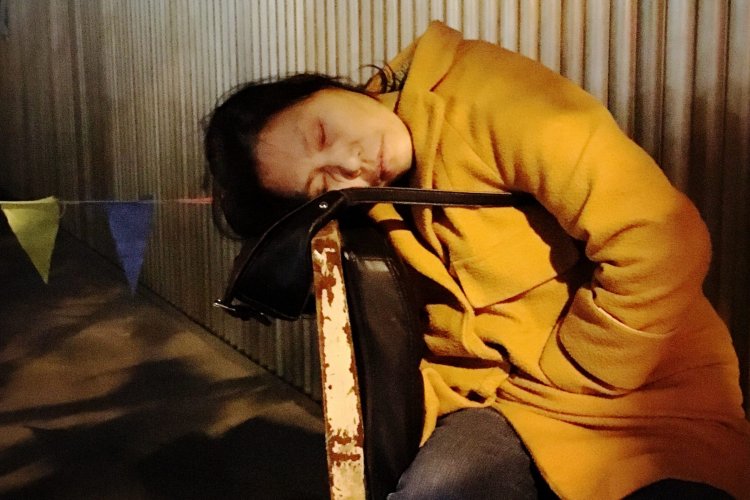Boss Cuts: Beijing's Surf Rock Torchbearers 100 Miles From the Sea
I find it’s utterly impossible to not be entertained by surf rock. Scratch that, to not be thrown into the depths of a giddy rock and roll high that refuses to come crashing down. There’s something about the long and sexy guitar slides, copious amounts of reverb, tremolo picking, and beat drumming that’s downright infectious, not only conjuring up images of the beach but embodying the spirit of youthful indulgence and reckless abandon.
So it comes as no surprise that the genre, which found its footing in Orange County, California in the 1960s, and was made famous by Dick Dale and later, The Beach Boys, never weaseled its way into the consciousness of China (the smoky and moon-drenched surf rock of The Molds being one exception). And while it's certainly a stretch to call Boss Cuts the only band out here spreading the good word, they certainly are the ones holding the torch, and relishing every second of it.

The band, made up of Daniel Vuillermin, Michael Marshall, Liane Halton, and Freddy Tsai, will drop their new EP, included as part of a split cassette with none other than Tavey Lean and The Solid Gold Dream Machine, this Friday, Apr 19 at DDC. The band was kind enough to answers some questions about growing pains, surf rock in China, and emulating '80s sword and sorcery.
Boss Cuts has gone through many incarnations over the years – can you walk us through the evolution of the band – from its birth to present day?
Daniel Vuillerman: I started Boss Cuts back in Melbourne, Australia. It was a two-piece band with Buck Lexton from The Night Party. We were doing a mix of garage, surf, rhythm and blues, and soul. Then I dropped everything and unexpectedly moved to China. Soon after I came to Beijing I met Freddy the Maggot AKA F Minus AKA Freddy Tsai (drummer) and we would go to a rehearsal space each week and played a mix of garage and rhythm and blues. We did a few shows as a two-piece. Our first show was at 69 Cafe. We also played at XP shortly before it got shut down. After that, we took a break as at that time I wasn’t sure whether there was much interest in fuzzy trashy '60s sounds. We then had another brief revival playing southern soul (I was listening to a lot of Stax, Hi Records, Sun Records, etc. at the time) but to be honest Freddy couldn’t play slow, deep grooves. All of those years listening to Motorhead changed his DNA. So one day at rehearsal I spontaneously said to Freddy ‘hey you can only play on the front of the beat so fuck it let’s not fight it and do surf music.’ I started playing Surf Beat by Dick Dale and it was a revelation. Freddy nailed it. So we spent six months rehearsing all of the great surf standards: Apache, Walk Don’t Run, Pipeline, Wipe Out, Kokomo, and also came up with a few original songs. We also would practice Miserlou. Our theory at the time was when we could properly play Miserlou we were ready to play live. We also agreed to never to play Miserlou live. We then contacted Mogu for a show and he put us on at his new space out in Xizhimen. Then somehow we got put on a Psycho Thursday at Temple. It was almost canceled as the booker didn’t know who we were and didn’t know how we got on the bill. It’s still a mystery. We played a mix of original songs, surf, and rockabilly. Then we played The Model by Kraftwerk and a guy with long hair and a girl with big hair started dancing together. Then some guy with a trombone jumped up on stage and started playing with us. I had no idea who these people were or why they liked us. Since then Marshall, Liane, Freddy, and I (and Dan Rothwell our unofficial fifth member) have played more than 50 shows. We also started a new Halloween tradition of performing songs by The Cramps. Early this year we recorded our first EP and will start work on an album soon.
Freddy Tsai: I met with Daniel back in 2014. We were hanging out in his place watching Mad Max 1 and 2 while sipping on VBs (Australia’s finest beer), which led us to talking about films by Russ Meyer, John Waters, and Troma as well as bands like The Cramps and pretty much everything in between. Then he dumped this whole 'hey how about let's play some music?' thing on me. Next thing I knew was we began jamming and playing gigs in venues like 69 Cafe, XP, and School as a duo before running into Temple regulars Marshall and Liane in mid-2017.
Where does your love for surf rock stem from? Who are some of your idols in the genre? Any lesser known figures that need a shout-out?
Liane Halter: Well one of the first albums I got obsessed with was the Best of the Beach Boys which was lying around my parent's CD cabinet. I have since moved onto female-led surf bands such as La Luz, Guantanamo Baywatch, and Sugar Candy Mountain.
Freddy Tsai: I slid into the genre when watching Stanley Kubrick’s tasteful inclusion of Surfin' Bird in Full Metal Jacket. This was the pre-internet VHS era when I was a sophomore in my junior high with literally zero knowledge regarding the genre whatsoever. So I really had to dig deep to find out who was responsible for that sound. I paused the ending credits, wrote down all music that appeared in that movie, read every possible article about Kubrick in every possible magazine that might give me any possible clues. I was incredibly determined coz that brief sample used in the film lingered in my soul. This was my first encounter with nasty lo-fi tunes and trashy images. There is no denying that I was going through my major rebellious juvenile stage AKA "whatever mainstream is up for I'm totally gonna be against it" phrase. Apart from that, I guess The Head Cat formed by Lemmy and Slim Jim Phantom plus Jay Hawkins are undoubtedly big influences on me although technically neither of them matches the surfy definition and I'm not entirely sure if they'd fit the lesser-known category. Also, those Sun Studio folks have played an important role in my inner life while growing up, especially Johnny Cash and Jerry Lee Lewis.
Michael Marshall: I dunno it just sounds nice doesn’t it? My all-time favorite is the soundtrack to The Endless Summer documentary which was recorded by The Sandals. This was an early '60s documentary where a handful of dudes from SoCal surf across the world. It was a defining film for surf culture (and created a lot of new surfing hot spots that are still a big deal) but the music is terrific. I’m pretty sure you can stream that one for free on Xiami since no one is really fighting for the rights.
!["It's hard not to like [surf rock], it’s even harder to claim to hate it. Who could hate it?"](http://www.thebeijinger.com/sites/default/files/styles/large/public/p2870755_0.jpg)
While it’s obvious that surf rock origins are the beach and the California coastline lifestyle, clearly the genre has moved beyond that – you can hear surf rock in just about every corner of the globe, from Siberia to Jakarta. What do you believe surf rock represents – in terms of musicality, imagery, and personally?
Freddy Tsai: Personally it whistles laid back, chill out in a cowboy hat with the awareness that everything will eventually collapse so try to enjoy the process when it does.
Daniel Vuillerman: Surf transcended the SoCal thing in the '90s. Films and imagery have been a significant part of this shift and expansion of the genre. So bands like Messer Chups draw upon Hammer horror films; Man or Astro-Man? draw upon '50s sci-fi films; Los Straightjackets draw upon Mexican culture, especially wrestling. So in this way, it’s a genre that can appropriate anything. Boss Cuts are working on becoming an '80s sword and sorcery band. Right now I’m in the carb-loading stage to get ready for my first workout.
Michael Marshall: Surf music is an absolute good. It all sounds nice, it’s relatively simple, it doesn’t really have any kind of stance to defend. It’s hard not to like it, it’s even harder to claim to hate it. Who could hate it? On top of that most surf music is instrumental so there isn’t really a language barrier.
What’s the reception been like for your band and more specifically to surf rock as a whole here in China – do you believe people are moving on from their one reference of "Miserlou"?
Michael Marshall: It’s been ok. At various times there have been one or two surf bands floating around somewhere in China. I do not think that most people outside of the 300 or so people we know are moving beyond "Miserlou."
Freddy Tsai: I believe with DJ Boss Cuts' help, we perhaps are.
You’ve teamed up with none other than Solid Gold for the split release that’ll be dropping this upcoming weekend – how did that come together? Did you borrow any of their brass?
Freddy Tsai: We've actually been talking about doing an EP thing for a little while and since Mr. Rothwell has frequently bounced up on stage as an honored guest member; he brought it up that Solid Gold was planning the same. That revealed the second part of this question which is affirmative, we did borrow Dan on the recording.
Michael Marshall: It was all Dan Rothwell. He did this. He played on our recording too. Are you even the least bit surprised?
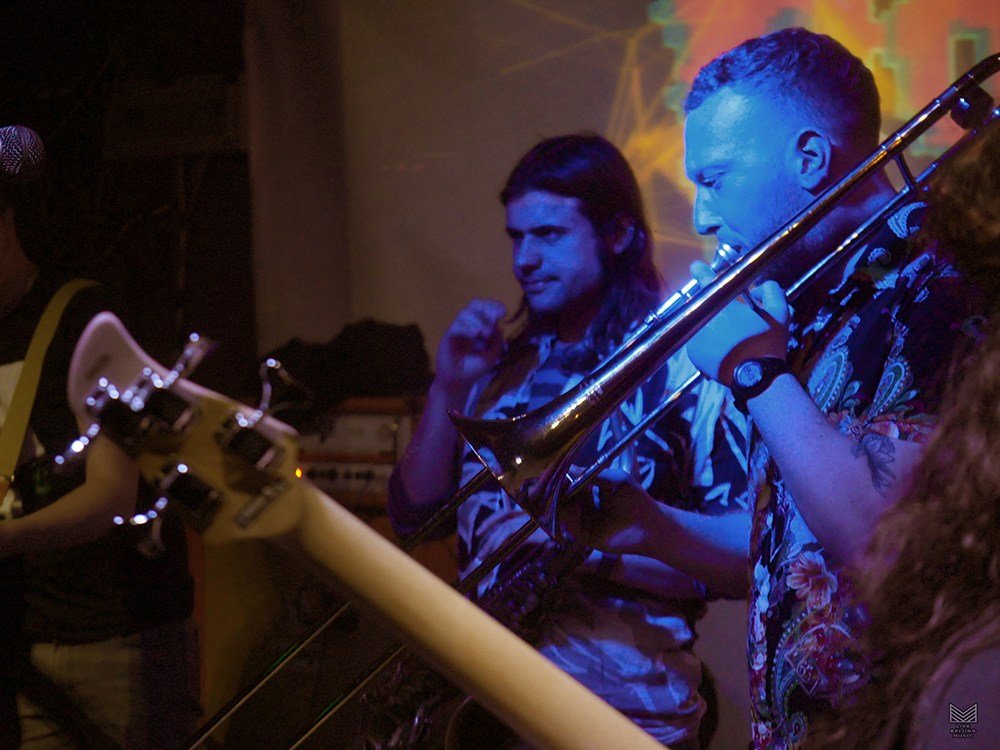
What was the recording process like? Did you find it difficult to translate your live act to the studio or was it nice to have more control over the individual components?
Freddy Tsai: Marshall booked this studio for two days in a nice neighborhood of Beijing with super parking-friendly and cheap rates. Percussion-wise I'd say it went smoother than we've all expected. We had Hugo Radyn over for one track ("Maggot Face"), he's just amazing and nailed it within two or three takes. Then we managed to wrap up the bass, drums, and most of the guitar during that weekend. Marshall did his vocals and saxophone separately. Dan [Vuillerman] did additional guitar parts with Rothwell who added trombone lines together. It then got sent overseas for mixing and mastering. One great advantage of working in the digital age is that you don't have to wait for weeks or months like it was when everything was analog.
Michael Marshall: Everyone has different approaches to recording. I hate the 'one instrument at a time' thing. Classic surf and garage bands recorded in a few takes with all the musicians together in a single room with a couple of microphones. We went with that kind of environment instead since it seems more appropriate for the genre and because we could maintain a bit of a live feel.
Liane Halton: What I like so much about this recording is that the process has been so varied. From a professional studio to rehearsal rooms and bedrooms with our own equipment, to supporting a mixer/master guy from the other side of the world through the internet. It was just such a realistic approach to music making and recording, and the tracks came out sounding as awesome as they do because of this. Dan Rothwell and Hugo Radyn probably wouldn't be on it if we had restricted the process by doing the whole thing in a studio.
Given your penchant for vinyl, how did it feel to drop down to the level of cassette tape for your first ever release? How can you justify this madness?
Freddy Tsai: Honestly I think the roots of vinyl is weak here in China. We skipped it when it was huge in the West. Today, it seems like vinyl is the instant standard to judge whether a person is a true music fan or not. However, this whole vinyl thing was not embraced in China until recently. I bought my first vinyl record in 2004, which is a shame really coz that's roughly like half a century behind the pace. CDs were slightly too vogue and expensive for me when I started to develop my massive hunger of digesting music as a kid, so it's safe to say cassette was my first major media to have it all blasting out loud, and for someone who'd prefer music to be physical and touchable rather than bytes and pixels, cassettes are perfect in their own existence, smaller and lighter, don't require floor-to-ceiling shelves nor a den nor a garage nor a home warehouse for storage, handy to transfer, in fact, as crazy as it sounds, globally there is a minor cassette sale boom, guess someone somewhere is still keen to cash in on a little nostalgic alternatives.
Daniel Vuillerman: I’ve probably spent as much time listening to tapes as records. When I was a kid my stepfather told me that vinyl can wear out and that I should copy them onto tape to preserve the records. Little did I know that this was a ploy to stop me from playing his records all of the time and send me to my room to listen to music. He was a prick. When I was in high school pirated tapes were how music was shared. I never really did the mixtape thing. I would just copy whole albums onto tape from record or CD. The last time I really listened to music on tape was in my first car, an early 1970s Austin 1800. The backseat of this car was like a lounge so I spent a lot of time there listening to tapes with friends. But probably our main justification for releasing a split cassette is that it is cheap. Boss Cuts spent less than RMB 5,000 from start to finish on this recording. It’s very much a DIY project which is something tapes have always been an essential part of.
What can audiences expect at the release show? Any surprises in store?
Freddy Tsai: Among the tremendous amount of uncertainties, one thing is down: I won't be driving that day which allows me to be a little less sober. I can't even remember the last time I was able to get shitfaced on whiskey on rocks. So I might initiate my full drinking mode – that may be considered a surprise.
Michael Marshall: We recorded an EP, Will, is that not enough for you? Are you not entertained? There will be T-shirts.
Catch Boss Cuts perform tracks off their new EP this Friday, Apr 19 at DDC. Tickets are RMB 60 on the door or RMB 50 advance.
Never miss a gig: click here for a huge list of live shows in the city, updated daily.
Photos courtesy of Boss Cuts



